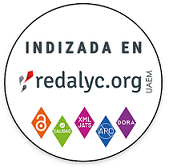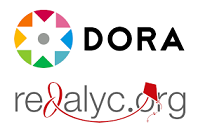About the Journal
Focus and Scope
Bitácora Urbano-Territorial aims to:
• Disseminate the efforts on territorial research including
structural, economic and political changes in Latin America and Colombia.
• Gather methodologies that reflect an integral vision of development processes, planning and territorial management.
• Raise and spread the analysis, interpretations
and alternative proposals to approach and to face territorial development problems.
• Introduce development experiences, from interdisciplinary
and transdisciplinary perspectives, that allow the interpretation and evaluation of present dynamics in diverse contexts.
• Propose a Latin American perspective on the subjects within the framework of contexts of globality and relative autonomies.
• Introduce in the national academic field discussions that are being relevant in the international context.
Bitácora Urbano-Territorial as a forum pretends to:
• Promote a wider participation of institutions and scholars that reflect, manage and propose on the subject of the urban-territorial, so they join the journal as collaborators or coeditors.
• Encourage academic research and papers production on spatial and territorial subjects, in the framework of development in different territory scales, with particular interest on urban matters.
• Allow and promote interdisciplinary research through the treatment and approach of the articles.
Bitácora Urbano-Territorial is addresed to:
Scholars, technical planners, territorial authority and
civil employees, non-governmental organizations, consulting industrialists, undergraduate and postgraduate students, all communities and people interested in the urban and territorial subjects and problematic, in Colombia and Latin America, primarily.
Peer Review Process
The Editorial committee of BITÁCORA URBANO-TERRITORIAL will announce a receiving paper deadline and topic. Whoever is interested in publishing, must send the paper on the announced dates.
The Editorial committee will submit the articles to scientific critical peer review after a preselect phase. The article will be send to the peers by following the double blind system, which consists of protecting the anonymity between the autor(s) and the evaluator(s) and even between the latter, in order to avoid posible biases in the evaluation.
The acceptance of a paper requires the agreement of at least two referees who must follow the journal refereeing rules. The result of evaluation will be notified to the author. If referees consider that the article needs modifications, the Editorial committee will communicate to the author the referees’ proposals.
Publishing committee may accept definitively the paper according to the topics of the next issue and the favorable outcome of evaluation. The Editorial committee will communicate to the author the resolution on the text, and send it to proofreading if it has been accepted. If it has been rejected the coordinating committee will announce the reasons of rejection.Open Access Policy
Bitácora Urbano Territorial provee acceso libre inmediato a su contenido bajo el principio de que hacer disponible gratuitamente investigación al publico apoya a un mayor intercambio de conocimiento global.
Todos los contenidos están bajo una licencia de Creative Commons Atribución 4.0
Sponsors
Universidad Nacional de Colombia (Sede Bogotá). Facultad de Artes. Instituto de Investigaciones Hábitat, Ciudad & Territorio
Sources of Support
Reviewer Guidelines
The Editorial Committee will send the papers to referees after evaluating the following items:
• Subject relevance.
• Clear exposure of the thesis or central aim.
• Endorsement of a research, an experience or a case.
• Concordance to author’s norms.
If the paper does not adjust to minimum requirements, the Editorial committee will communicate the author what is required. Referees must be qualified in the evaluating area. They will join the referee database of the journal according to their specialty, this database has been structured with different universities and national and international research centers.
The opinion of referees will be based in the content and its form. Among other aspects that referees consider relevant, they must attend, widely and as clear as posible, the following:
• Subject relevance.
• Clear exposition of the thesis or central aim.
• Explicit situation of debate scope
• Specific contribution in study area.
• Statement foundation.
• Adequate theoretic and methodological level.
• Research, bibliographical o primary sources support.
• Relevancy of bibliography.
• Consistency of argumentation.
• Clarity and concision of writing, precision in the used terms.
• Adjustment of the title to the content
• Synthesis capacity exposed in the summary.
• Adjustment to authors’ norms.
In addition, the referee’s report will express if the paper is:
• Publishable unaltered
• Publishable after minor changes
• Publishable after major changes
• Reject
Each category excludes any other, so only one must be chosen. When changes, either major or minor, are recommended, recommendations must be explicit.
In every case referees will guard that the article –not mattering if it has been written for the Journal or it is a product of a congress, a seminar or similar- is adapted to the journal requirements in the Instructions for Authors. If not, the referee will recommend the modifications.
If the referee finds interesting the topic, but as an article it is insufficient, he/she may recommend it to be published as a study case or a reflection. Also in this cases he must explicit the reason of his judgment.
After the articles have been accepted, the journal may do proofreading and change whatever it is consider convenient. When it is possible changes will be consulted with authors. To send its opinions to the journal the referee has one
month since the registered date he receives it.
The referee will receive a complementary issue of BITÁCORA URBANO-TERRITORIAL independently of its opinión in relation to the publication of the article. Identity of author is not expressed to authors neither the referees name, it is a double blind peer review, unless it is hand writing asked and accepted.


























